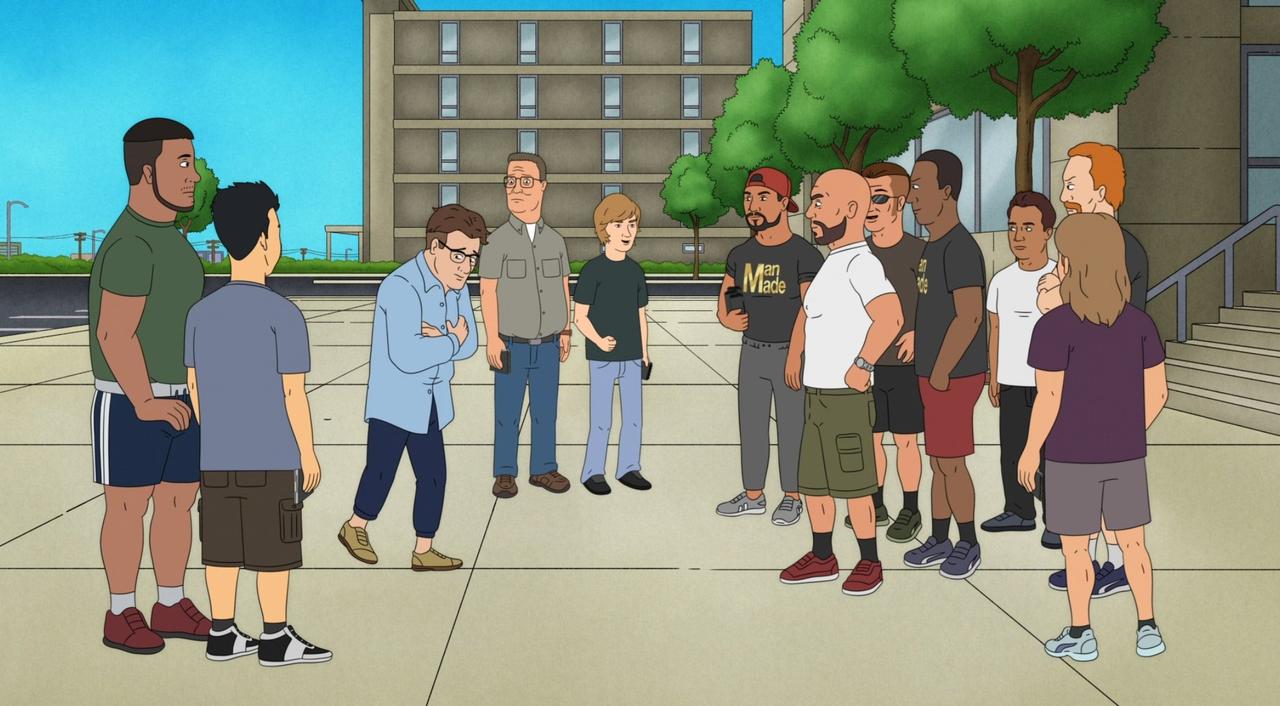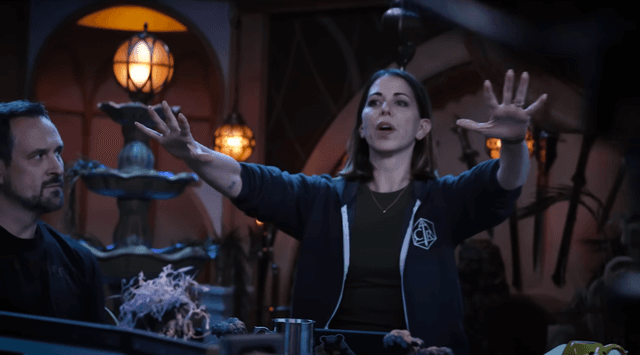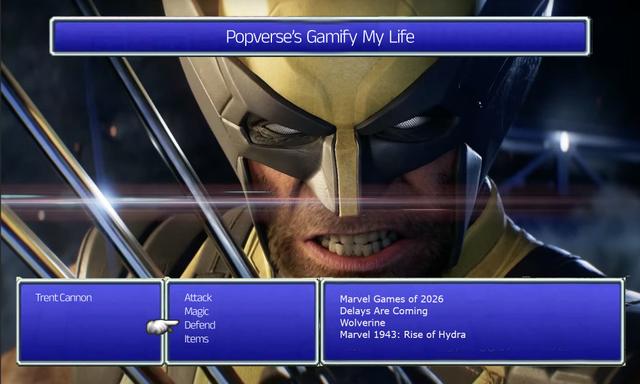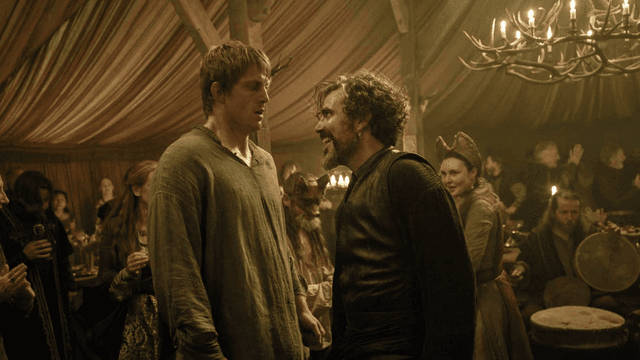If you click on a link and make a purchase we may receive a small commission. Read our editorial policy.
Why the new King of the Hill episode 'No Hank Left Behind' is the most important episode of the entire show
Hulu’s King of the Hill revival tackles toxic masculinity, the manosphere, and generational trauma

Popverse's top stories
- Minneapolis comic & bookstore owner Greg Ketter emerges as a symbol of protest against ICE actions
- Wonder Man is the Andor of Marvel Studios’ modern TV series on Disney+
- With Marvel Tokon, Wolverine, and 1943: Rise of Hydra, 2026 will either be the best year for Marvel Games, or the most disappointing [Gamify My Life]
When Hulu announced they were bringing back King of the Hill for a 14th season, I was excited. One of the things I was looking forward to was seeing how Hank Hill would adapt to our modern world. After all, the country is not the same place it was when King of the Hill was cancelled in 2009. Our country has been fundamentally changed by the Me Too movement, the election of Donald Trump, the pandemic, and countless other events.
Being a conservative in Texas in 2009 is different than being a conservative in Texas in 2025, so where does someone like Hank Hill fit in? Does our world still have a place for someone like Hank Hill?
‘No Hank Left Behind,’ the ninth episode of season 14, answers that question. That episode alone justified the reboot, and by my mark, it’s the most important episode of the series ever produced.
Hank Hill vs the Manosphere

‘No Hank Left Behind’ features the return of Hank’s half-brother, Good Hank (G.H. for short). G.H. is now a teenager, and with his father Cotton dead, he has no male role models in his life. Searching for male guidance, G.H. falls victim to 'the manosphere,' and wants to attend a manhood workshop run by a grifter named Eli.
Before we go any further, it’s important to explain what the manosphere is in King of the Hill. The manosphere is a far-right community that seeks to redefine manhood in ways that many would describe as toxic. The community promotes a misogynistic way of thinking, with many key figures openly spouting anti-female rhetoric. Men are encouraged to become alpha males and bully and demean those whom they perceive as betas.
There are numerous workshops that operate under the guise of self-improvement. The manosphere has also spread through podcasts, TikTok, and YouTube videos. If you’re familiar with figures like Andrew Tate, that should give you an idea of what it’s all about.
Hank volunteers to take G.H. to a workshop called Man Made, unaware of its true nature. Hank initially believes the experience will help mold G.H. into a respectable young man, but he’s quickly put off by the demeaning messaging and misogynistic brainwashing. After some background checking from his neighbor Dale Gribble, Hank exposes the Man Made founder, Eli, as a fraudster who is funded by his mother. Hank then gives the other attendees a motivational speech about positive masculinity, which gets through to G.H. and the others.
How King of the Hill deconstructs the manosphere

This episode hit close to home for me. In the past, I’ve written about my other job, which involves mentoring at-risk youths. I see lots of teen boys in fatherless homes, and I know how easy it is for them to get caught up in the manosphere and the world of toxic masculinity. With no male role models in their lives, boys will gravitate towards other figures to define what manhood is for them. G.H. has grown up without a father, and he’s clearly yearning for a male role model. His mother Didi, states as much, and that’s why she begs Hank to spend time with him.
In less than 30 minutes, ‘No Hank Left Behind’ does a wonderful job deconstructing the manosphere ideology and demonstrates the ways it brainwashes newcomers. From the start, the Man Made operator Eli tells the workshop participants that all of their problems are due to women or beta males keeping them down.
“Most of us are in financial trouble from working under a female or a beta instead of investing and starting our own businesses,” Eli says.
Many people who go to workshops like this are already in a vulnerable state of mind, and messaging like that only makes things worse. In fact, as the Man Made workshop progresses, G.H. begins to feel worse about himself rather than better. He’s let Eli define manhood for him, and when G.H. isn’t living up to that image, his self-esteem shatters.
”I can’t, I’m just another weak loser destined for cucktitude,” G.H. says when he’s unable to complete an obstacle course. This is where Hank comes in. “Those words, whatever they mean, have never described a Hill,” Hank tells his teenage brother. Hank’s words lift G.H.’s spirit, and his encouragement helps him finish the obstacle course.
Eli’s Man Made rhetoric was designed to make G.H. feel bad about himself and blame his problems on others. In contrast, Hank’s words were about affirming G.H. for who he is and encouraging him to reach his full potential.
The tragic thing about all this is that the line between reality and fiction is blurred. Eli and the Man Made workshop aren’t real, but there are numerous workshops and manosphere influencers out there spreading his message. There are also many boys and men who fall victim to that ideology, like G.H., and they don’t always have someone like Hank to rescue them.
Toxic masculinity vs positive masculinity

In the wake of the Me Too movement, our culture has had some very important discussions about toxic masculinity. However, it’s a nuanced discussion, which makes it easy to lose the point. Some commentators have confused attacks on toxic masculinity with attacks on masculinity in general. We don’t have the space to dive deeper into the psychology of that here, but to some people, the confusion stems from the fact that in their minds, there is no difference between masculinity and toxic masculinity. As a result, many discussions turn into strawman arguments where one side accuses the other of trying to erase masculinity.
The answer to toxic masculinity isn’t no masculinity, it’s positive masculinity. That’s the messaging that many people seem to be missing. Although Hank never uses the term in the episode itself, he becomes a big advocate for positive masculinity.
For example, when G.H. is disheartened because a girl he has a crush on has “friend-zoned” him, Eli encourages him to make the girl jealous by dating all her friends. In contrast, Hank tells G.H. to respect her decision.
”Just because a girl wants to be your friend doesn’t mean she’s a bad person,” Hank says.
“She was leading me on! Eli’s right! Females are the problem,” G.H. replies. “What’s the problem with respecting her decision? That’s the foundation for a good relationship,” Hank says.
In this scene, Hank also advocates for one of the core concepts in positive masculinity, supporting the women in your life.
“My wife, mother, and our propane delivery woman have supported me through just about every crisis I can think of. And if we aren’t getting support from those women in our lives, it’s because we haven’t earned it. That’s the lessons his camp should teach.”
This statement comes shortly after Eli has encouraged all the program’s participants to blame their life struggles on women.
If you want to understand the difference between toxic masculinity and positive masculinity, simply watch this episode and compare the way Eli and Hank relate to their fellow men. Eli seeks to divide the men and fuel the anger in them. When G.H. speaks with Eli, his low self-esteem grows. Meanwhile, G.H. feels affirmed and more confident when Hank helps him during the obstacle course.
Return of the king

I went into the King of the Hill revival wondering about Hank’s place in the world. Thanks to ‘No Hank Left Behind,’ I have my answer. In a world of anti-heroes, right-wing grifters, and negative male role models, Hank Hill represents what masculinity could be. Rejecting toxic masculinity doesn’t mean acting weak or unmanly; it means being more like Hank.
Hank Hill believes in an honest day’s work, taking pride in your home, being a leader, affirming the women in your life, and strengthening your community. There have been times when Hank has fallen short of that. He has threatened to “kick the ass” of his friends, and he wasn’t always supportive of Bobby’s hobbies when he was growing up. He can be a bit behind in the times, and some of his viewpoints aren’t the best. But Hank learned from his mistakes and grew, which is one of the things that makes him a good man. People like Hank Hill seem like outdated relics from a bygone time, but we need people like them now more than ever.
Generational trauma

A secondary theme of the episode is generational trauma and breaking the cycle. When G.H. begins to go on a misogynistic rant, Hank flashes back to their father, Cotton. Hank’s late father was sexist, rude, and never had a kind word to say about him. In fact, Cotton named his youngest son Good Hank as a way to spite Hank.
Cotton was a textbook example of toxic masculinity, and Hank was watching his brother transform into Cotton before his eyes. Hank had broken the cycle by growing up to be a different type of man. He loved and respected his wife Peggy, and while he and Bobby didn’t always see eye to eye, he never psychologically tortured his son the way Cotton tortured him.
After Hank is able to get through to G.H., there’s a moment at the end of the episode where Hank flashes back to his brother’s birth. “I gotta stay alive so Good Hank doesn’t come out as terrible as you did,” Cotton tells Hank in the flashback.
We cut back to the present, where G.H. has just hugged his mom and spoken about doing something nice for her. He locks eyes with his older brother as he leaves their driveway, and Hank waves goodbye to him. “Too bad, old man,” Hank says, remembering his late father’s words.
Hank has succeeded in confronting his generational trauma and preventing his young brother from growing up to become another Cotton. He’s stopped the cycle of abuse in his family, paving the way for G.H. to have a brighter future.
How we can stop the manosphere

As I mentioned earlier, this episode was a personal one for me. I’ve seen many boys like G.H. fall victim to the manosphere in real life. My job has put me in contact with lots of at-risk youths, and not every story has a happy ending.
At the risk of sounding like an activist, we all have the power to step up and make the world a better place. Many boys are growing up without strong male role models, and if they don’t find them in real life, they’ll turn to online figures like Andrew Tate and other manosphere influencers. Volunteer for organizations like Big Brothers, or check in on the children in your life, whether it’s your nephews, cousins, or other young relatives. Be the positive role model the youth of today need.
In other words, be more like Hank Hill.
Want to know what's coming up next in pop culture? Check out Popverse's guides to:
Follow Popverse for upcoming event coverage and news
Find out how we conduct our review by reading our review policy
Let Popverse be your tour guide through the wilderness of pop culture
Sign in and let us help you find your new favorite thing.
















Comments
Want to join the discussion? Please activate your account first.
Visit Reedpop ID if you need to resend the confirmation email.